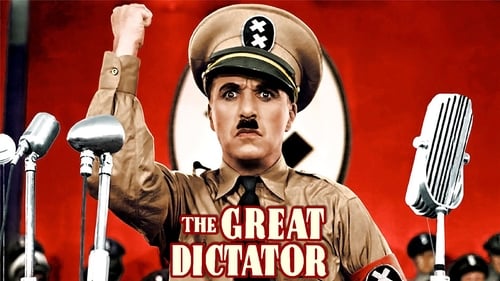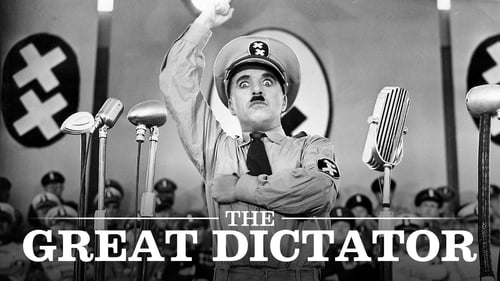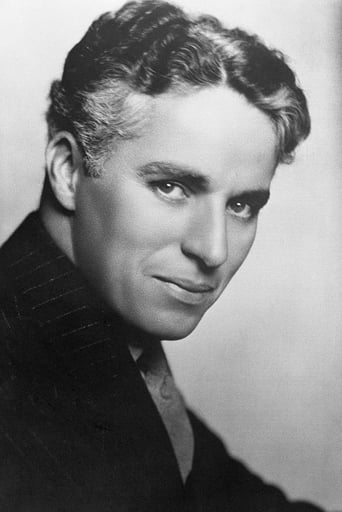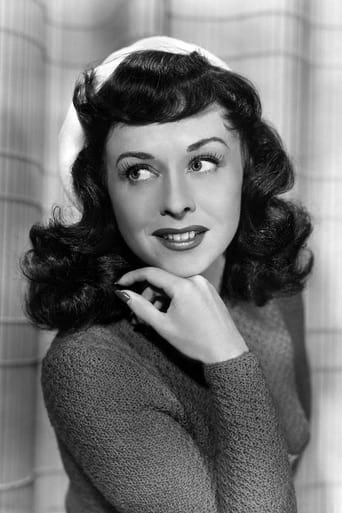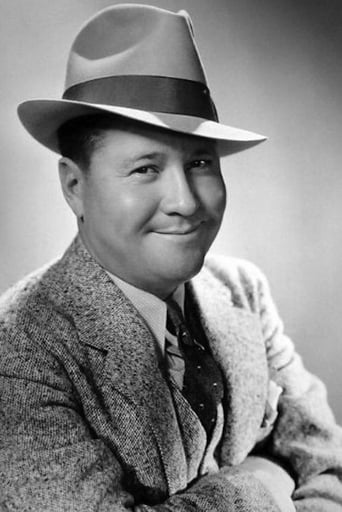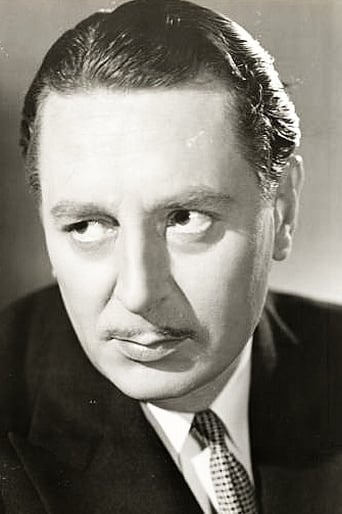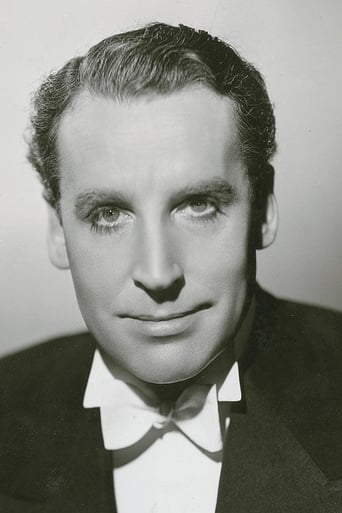SnoReptilePlenty
Memorable, crazy movie
Marva-nova
Amazing worth wacthing. So good. Biased but well made with many good points.
Cissy Évelyne
It really made me laugh, but for some moments I was tearing up because I could relate so much.
Walter Sloane
Mostly, the movie is committed to the value of a good time.
adonis98-743-186503
Dictator Adenoid Hynkel tries to expand his empire while a poor Jewish barber tries to avoid persecution from Hynkel's regime. The Great Dictator boasts another impressive perfomance from Charlie Chaplin but also hidden messages behind it's comedy plus it also has the infamous scene in the barber shop with you know what soundtrack in it. This film is also super funny and even has Chaplin talking and to be honest i liked the fact that we finally saw him speaking for a while it was nice and his perfomance as a german was just hysterical.. (10/10)
ryan_cchew
Would you think that creating a satirical film that mocked Adolf Hitler at the time of World War II when the USA and Germany were still at peace was a good idea? In fact, this movie was banned in some countries. Even England did not allow it to be played. In the final scene of The Great Dictator, directed and starred by Charlie Chaplin, he gives an inspirational speech as Hitler and ironically, warns people to not yield to greedy men, to fight for what's right and to learn to love and appreciate everyone. But, the meaning behind what Charlie Chaplin says, the way he presents this speech and how he wrote it is very unique and powerful that makes the viewer want to hear what he is saying. As the film was meant to satirize Hitler and the Nazi regime, Charlie Chaplin presents his speech similarly to the way Hitler speaks publicly. Hitler's tactic was to start off quiet and soft. He then begins to builds momentum and his voice gets increasingly louder and he puts more emphasis on words. He uses hand and facial gestures to get his point across. Despite being a horrible person, he was a very good orator and that allowed him to become a powerful leader. Chaplin imitates this by similarly starting off quiet and slowly, but getting louder as time passes. You can see the effort of Chaplin's facial features being put to use as he is yelling. This makes the viewer more entitled to listen as words are being thrown loudly in front of them along with intense music that builds up. As people are now actively listening, they understand a sense of what he is trying to encapsulate, that being how humanity can better itself. In the speech, he says, "We have developed speed, but we have shut ourselves in. Machinery that gives abundance has left us in want. We think too much and feel too little. More than machinery we need humanity." (The Great Dictator) The way that Chaplin wrote this speech is also strategically written. He uses contrast to emphasize his point that although we as humans have made progress, there are negative consequences of them and these are the things that we need to realize so that we can change now. By saying these things, he has given us a sense of negativity. He then says, "The misery that is now upon us is but the passing of greed – the bitterness of men who fear the way of human progress. The hate of men will pass, and dictators die, and the power they took from the people will return to the people." (The Great Dictator) He shines a light on the positive side of the bitter society at the time and gives hope for the people. Chaplin then inspires and uplifts the audience to not just do nothing when atrocious things are happening. At the end, he says, "Dictators free themselves but they enslave the people! Now let us fight to fulfill that promise! Let us fight to free the world – to do away with national barriers – to do away with greed, with hate and intolerance." (Chaplin) This gives the viewers a final note to not let men like Hitler rise to power, but to unite for a better world. The ending of the speech is that way because he wants the viewers to support his values. He then says, "You people have the power to create happiness! You, the people, have the power to make this life free and beautiful." (Chaplin) Chaplin uses Logos, pathos, and ethos to convey his point. He wants this speech to be easily understood. The reason why this speech is still relevant today and possibly for many years in the future is because it tackles the idea of oppression and how we must do something as the human race to not allow it to happen. It is important that we understand what happened at the time this movie was made as history is bound to repeat itself when people don't learn about it. This speech was made to reinforce the ideas of democracy and to put an end to tyranny and bring society to a better place. Charlie Chaplin mimics Hitler's oral style to grab the attention of the viewer and put them on the same mindset. He writes a powerful speech utilizing a unique way to connect with the reader to warn us about the dangers that are occurring. He wants us, the people, to stand up against people like Hitler, who he portrayed.
ben hibburd
The Great Dictator Is written and directed by Charlie Chaplin. It also sees him play duel roles. In the primary role he plays Dictator Adenoid Hynkel of a fictional country called Tomainia. Who over the course of the film tries to expand his empire by trying to borrow money from a Jewish banker In order to Invade his neighbouring country of Osterlich. After being refused the loan he orders the purge of Jewish community which was already being subjugated under his orders.Chaplins second role Is juxtaposed against Hynkel, he plays a Jewish barber(his name is never given) and Is a WW1 veteran. Who In the process of saving the life of a wounded pilot, loses his own memory. Twenty years later returns to the ghetto where he falls In love with Hannah(Paulette Goddard), and tries to go back to being a barber. However after being constantly harassed by Hynkels stormtroopers, finds himself on the run.The set up and story of this film is fairly basic, and offers no surprises, but the film never Intends to. Instead this Is a platform for Chaplin to voice a larger message. The film was made In 1940, at the time the USA hadn't entered the war yet. Whilst the horrors and persecution of the Jewish people hadn't been fully realised yet at that point In time. If It had of been know, I think this would've been a very different film, It probably wouldn't of even been made.This if one of only a couple of films In which Chaplin spoke In, and It's this reason why the film feels more powerful then It would've been had someone else starred In It. This is personified In what many people would agree to be the finest speech In film history at the end of the film. The last five minutes of the film are by far and away the most famous aspect of the film, and for good reason. It's a rousing and profound speech, that comes straight from Chaplins heart. It's a speech that speaks too the very goodness of humanity. It's also made all the more effective coming from a man known for his silence.Whilst the last few minutes of the film has a very serious tone and message. The film contains the usual levity and slapstick humour that Is associated with Chaplins work. There are many moments of excellent satire peppered all throughout the film. my personal favourite being when the Barber meets up with the pilot he saved twenty years later(Schultz). Schultz saves him from being taken by the Stormtroopers. He says to the barber "Strange, and I always thought of you as an Aryan" To which Chaplins barber responds "I'm a vegetarian" In a deadpan manner. There are a few jokes that do feel a little dated. The majority however hit their mark, and feel fresh and contemporary In todays current climate.The Great Dictator came out at an Important time not just film history, but human history. Whilst some of the satire Is a little too on the nose. The film did what it needed too do with flying colours, It's a beautiful film to watch and the editing and direction is on point. The Great Dictator maybe arguably one of the most important films ever made. It's a film that everyone should watch at-least once In their life-time.
tom-durham
What is very clear is that Charlie Chaplain is the master of silent films and slapstick humour. Unfortunately, this is not a silent film.Near the beginning there is a ~5-10 minute long 'joke' of a speech in garbled German-English words. I couldn't even make out what he is saying, the German-English jokes were not at all obvious, and so it was not funny and quite boring. If you manage to keep watching past this, you're doing well, it gets better but not by much.The small amount of classic charlie chaplain slapstick was mostly good and I laughed a few times at that, but unfortunately between the slapstick is tedious, unexciting dialogue.Maybe what Charlie Chaplain did was ground breaking at the time. Today, it fails to capture interest long enough to enjoy the comedic elements.




